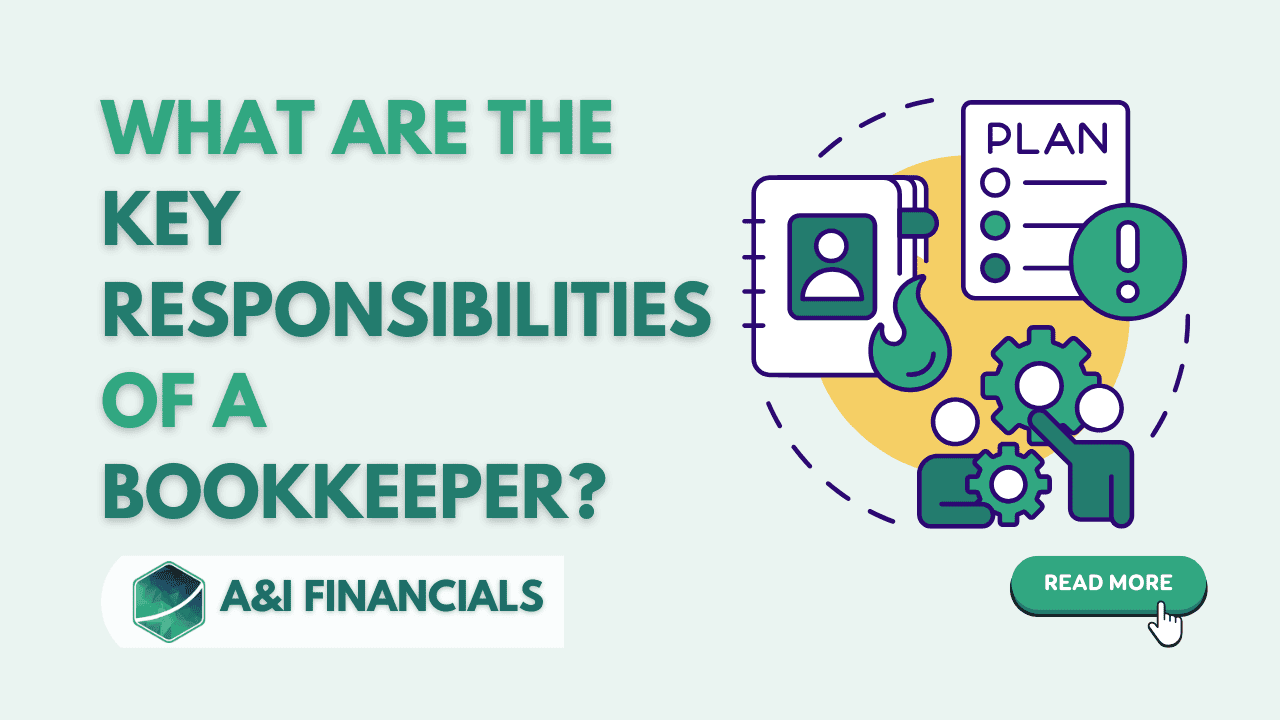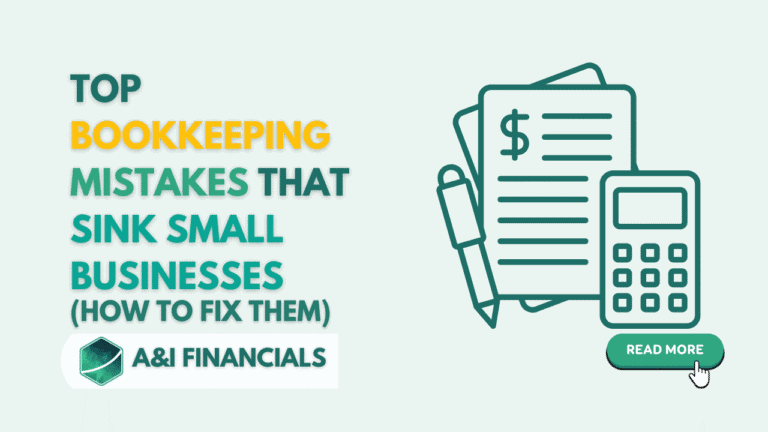What Are the Key Responsibilities of a Bookkeeper?
Managing finances can feel like trying to piece together a puzzle with no edges. That’s where a bookkeeper steps in, bringing clarity to the chaos. So, what are the key responsibilities of a bookkeeper? Simply put, they ensure your financial records are organized, accurate, and up-to-date, making your life easier. Let’s dive into the details and break it all down.
Why Every Business Needs a Bookkeeper
Running a business without a bookkeeper is like driving blindfolded. You need someone to track where your money goes and how it flows. A bookkeeper provides the foundation for financial stability by managing the nitty-gritty details. Whether it’s a small business or a larger operation, their role is essential.
Financial Record Management: The Heart of Bookkeeping
A bookkeeper’s primary task is financial record management. This means keeping a clear and organized record of every financial transaction. Every dollar spent or earned is accounted for, ensuring that the business’s financial data is always up-to-date.
Examples of What They Manage:
- Receipts for expenses.
- Sales invoices.
- Bank statements.
By keeping these records neat, they make sure there’s no confusion when it’s time to analyze the numbers.
Tracking Income and Expenses: The Daily Grind
Keeping track of income and expenses is like keeping score in a game. Without it, you wouldn’t know if you’re winning or losing. Bookkeepers ensure that every penny coming in and going out is recorded.
How Do They Do This?
- Logging revenue from sales or services.
- Recording payments for utilities, rent, or supplies.
This data helps owners make informed decisions. For example, knowing if you’re overspending on inventory could save thousands.
Maintaining the General Ledger
Think of the general ledger as the backbone of bookkeeping. It’s a master document where all financial transactions are categorized. Bookkeepers carefully update it to ensure it reflects the business’s financial health.
Why It Matters:
- It keeps track of profits and losses.
- It helps prepare for tax season.
Reconciling Bank Statements
Ever found a $20 bill in your coat pocket? Reconciling bank statements is like that but on a larger scale. Bookkeepers match bank transactions with the general ledger to ensure there are no discrepancies.
Key Benefits:
- Detecting errors or fraudulent activity.
- Ensuring the accounts are balanced.
It’s a vital step that keeps financial accuracy in check.
Preparing Financial Statements
Business owners often need financial statements to understand how their company is performing. These include balance sheets, income statements, and cash flow statements. Bookkeepers prepare these to provide a snapshot of the business’s financial standing.
Common Uses:
- Attracting investors.
- Applying for loans.
- Making budget decisions.
Managing Accounts Payable and Receivable
Bookkeepers handle the ins and outs of money owed to and by the business. This includes managing accounts payable (bills) and accounts receivable (invoices).
Tasks They Handle:
- Paying vendor invoices on time.
- Sending invoices to customers and following up on late payments.
Payroll Processing
Payroll isn’t just about handing out checks. Bookkeepers ensure employees are paid the right amount, on time, every time. They calculate salaries, withhold taxes, and track benefits.
Why It’s Important:
- Keeps employees happy.
- Avoids penalties from tax authorities.
Ensuring Tax Compliance
Tax season can be stressful, but bookkeepers make it manageable. They ensure the business complies with tax laws and deadlines by organizing records and calculating obligations.
Examples:
- Tracking deductible expenses.
- Preparing documents for accountants.
Budgeting Assistance and Cash Flow Tracking
Bookkeepers also play a role in helping businesses plan for the future. They provide insights into spending and income trends, which helps with budgeting.
How They Help:
- Monitoring cash flow to prevent shortages.
- Offering suggestions to cut unnecessary expenses.
Invoice Management
Invoices are the lifeblood of many businesses. Bookkeepers handle invoice management to ensure smooth financial operations.
What This Includes:
- Creating and sending invoices.
- Ensuring timely payments from clients.
The Role of Bookkeeping Software
Modern bookkeeping often involves tools like QuickBooks and Xero. These software solutions streamline processes like tracking expenses and generating reports. Bookkeepers use these tools to maintain efficiency and accuracy.
Cloud-Based Bookkeeping: The New Era
With the rise of cloud technology, many bookkeepers now use cloud-based bookkeeping systems. These platforms allow real-time updates and remote access to financial records, making it easier for business owners to stay informed.
Freelance Bookkeepers and Virtual Services
In today’s gig economy, businesses can hire freelance bookkeepers or use virtual bookkeeping services. These professionals work remotely but offer the same expertise as in-house staff.
Virtual Financial Services Offered by A&I Financials
At A&I Financials, we specialize in delivering top-notch virtual financial services tailored to meet your business needs. From comprehensive bookkeeping solutions to financial reporting and payroll management, our experienced professionals ensure accuracy and reliability. We use advanced tools like QuickBooks and Xero to keep your financial records organized and accessible in real-time. Whether you’re a small business owner or managing a larger operation, our services provide the flexibility of remote support with the expertise of a dedicated in-house team.
Certified Bookkeepers and Best Practices
Hiring a certified bookkeeper ensures professionalism and adherence to industry standards. They follow bookkeeping best practices, such as double-entry accounting, to minimize errors.
Audit Preparation Made Simple
Audits can be daunting, but bookkeepers make them less stressful. They organize and prepare all necessary documents, ensuring the process runs smoothly.
Expense Tracking and Profit and Loss Statements
Bookkeepers meticulously track expenses and create profit and loss statements to show whether the business is profitable. These insights are crucial for long-term success.
The Bottom Line: Bookkeeping Is Essential
So, what are the key responsibilities of a bookkeeper? In short, they keep your financial house in order. From managing records to preparing financial statements, their work ensures businesses run smoothly.
Whether you’re a small business owner or part of a larger company, having a bookkeeper is like having a financial GPS. They guide you through the complexities of managing money, so you can focus on growing your business.






